

Learn to Hold Joy and Grief at the Same Time, Without Feeling Like You’re not enough
The "Enoughness Project"
with Katrina Mautner, LMFT
Therapy and Support for LGBTQ+, Neurodivergent, and Multicultural Communities in California
You don’t have to choose between surviving and belonging. In this space, you’ll learn to trust your own experiences, care for yourself without shame, and build relationships that feel possible, without masking, overworking, or collapsing under the pressure to be more.
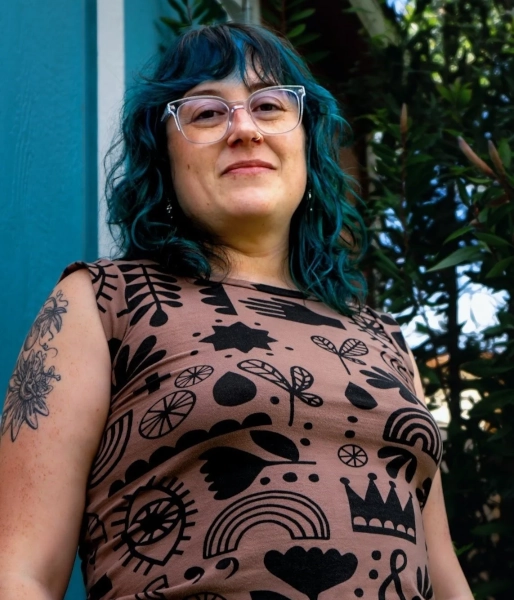
Learn to Hold Joy and Grief at the Same Time, Without Feeling Like You’re not enough
The Enoughness
Project
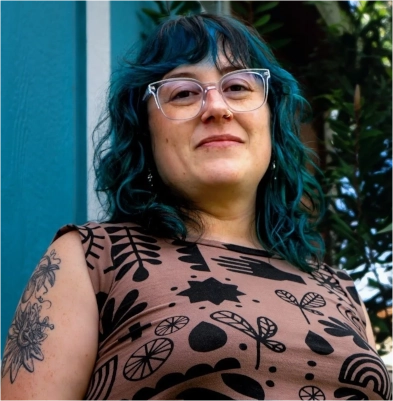
with Katrina Mautner, LMFT
Therapy and Support for LGBTQ+, Neurodivergent, and Multicultural Communities in California
You don’t have to choose between surviving and belonging. In this space, you’ll learn to trust your own experiences, care for yourself without shame, and build relationships that feel possible, without masking, overworking, or collapsing under the pressure to be more.
“You’re not broken for struggling.
You’re human, and you deserve support that sees all of you.”
You’ve done everything you were told would help. You’ve worked hard, achieved, held yourself together, and kept showing up, even when it felt like you were drowning.
From the outside, people might think you’re fine. But inside, you’re exhausted from masking, from trying to meet impossible expectations, and from questioning if you’ll ever feel like enough.
This space isn’t about fixing you. It’s about helping you stop disappearing into shame, stop overworking yourself to earn love, and stop carrying the weight of being “too much” and “not enough” at the same time.
Here, you’ll learn how to feel grounded in your own truth, connect without abandoning yourself, and begin trusting that your needs and your differences don’t make you broken. They make you real.
“You’re not broken for struggling.
You’re human, and you deserve support that sees all of you.”
You’ve done everything you were told would help. You’ve worked hard, achieved, held yourself together, and kept showing up, even when it felt like you were drowning.
From the outside, people might think you’re fine. But inside, you’re exhausted from masking, from trying to meet impossible expectations, and from questioning if you’ll ever feel like enough.
This space isn’t about fixing you. It’s about helping you stop disappearing into shame, stop overworking yourself to earn love, and stop carrying the weight of being “too much” and “not enough” at the same time.
Here, you’ll learn how to feel grounded in your own truth, connect without abandoning yourself, and begin trusting that your needs and your differences don’t make you broken. They make you real.
HOW IT WORKS
This is the "Enoughness Project," a 9-step process that helps you move from surviving and questioning if you’re ever “enough” to feeling grounded, worthy, and present in your own life.
You’ll learn how to recognize the patterns that keep you stuck, release shame that doesn’t belong to you, and build a way of living that feels possible, even when grief, joy, and difference all live in the same body.
Each phase is designed to help you stay with yourself instead of disappearing, connect without overworking, and reclaim the truth that you were never broken to begin with.
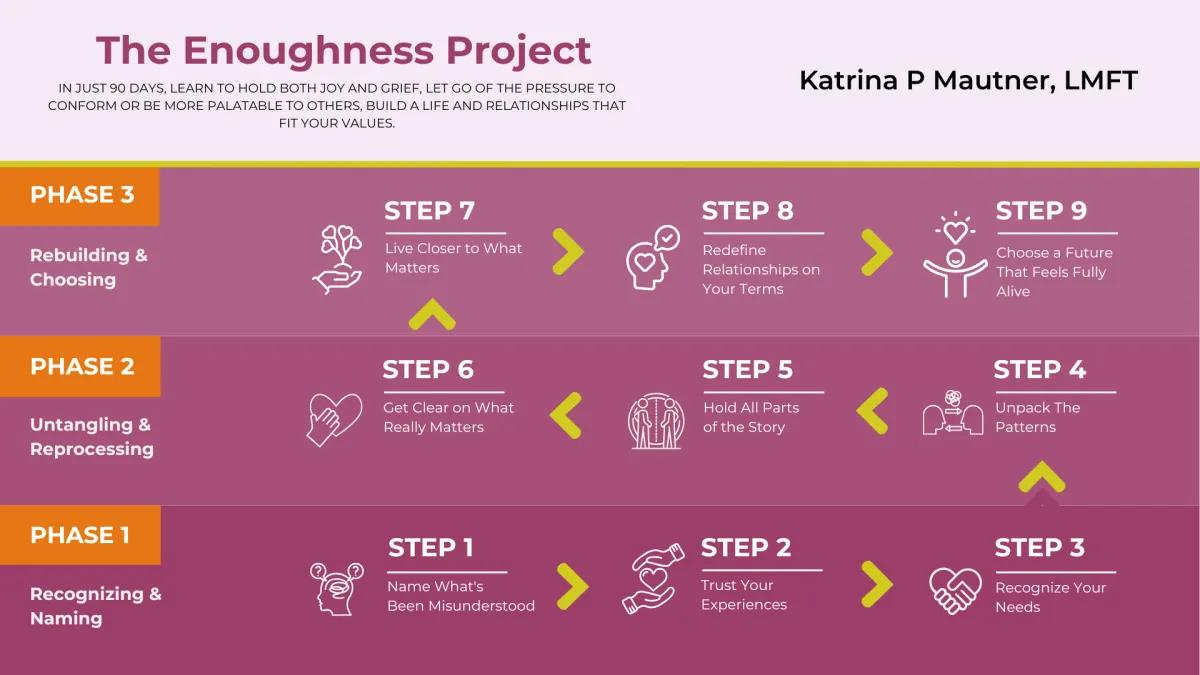
Phase 1: Recognizing & Naming
Start recognizing the patterns, struggles, and needs that have been misdiagnosed, minimized, or ignored. Begin trusting your internal experience, even when it doesn’t match what others expect or recognize. Recognize that it’s okay to need comfort, clarity, and belonging without having to choose one side.
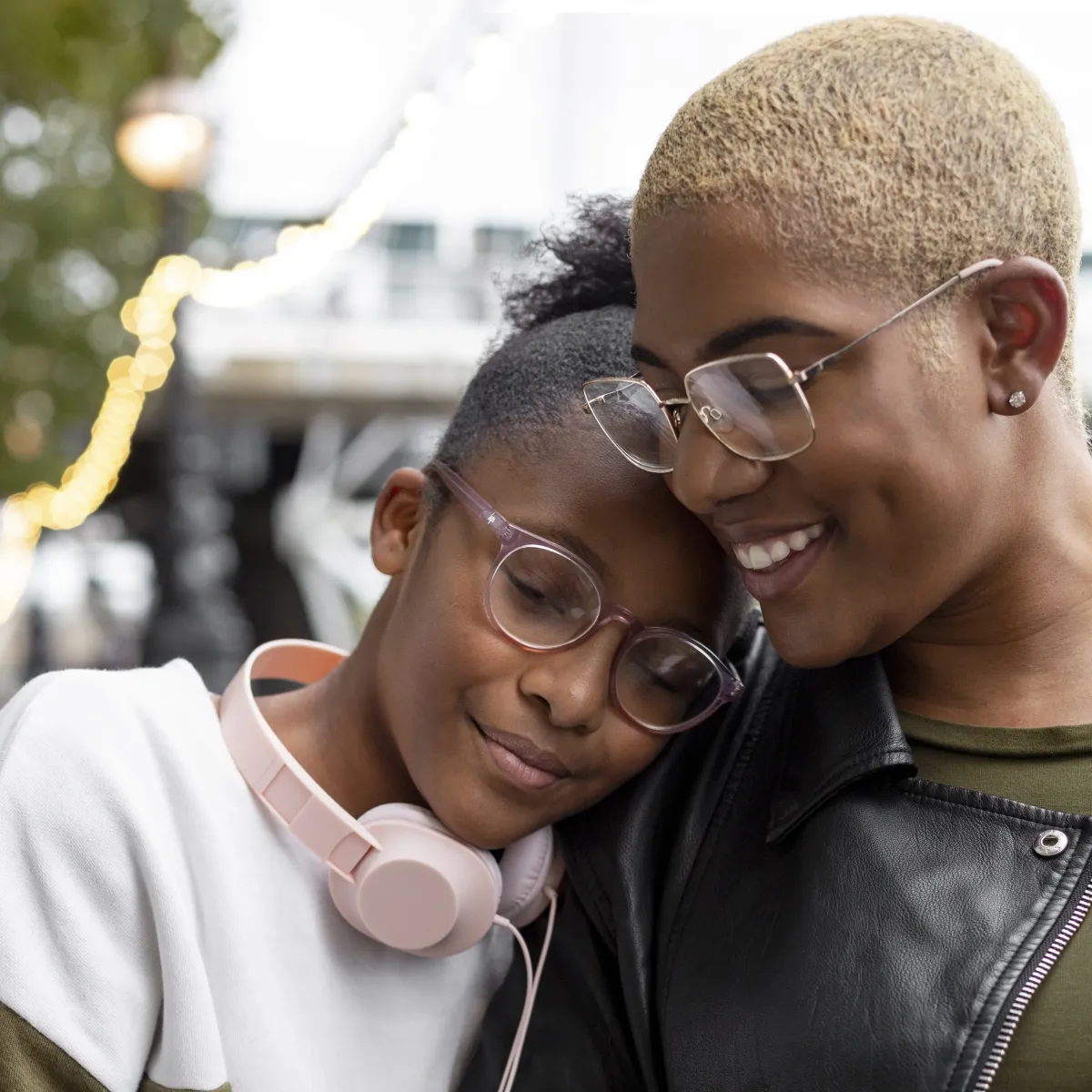
Step 1:
Name What’s Been Misunderstood
This step focuses on naming neurodivergence, trauma responses, or identity facets that were previously masked, dismissed, or internalized as personal flaws
Cope with feeling too queer, too different, too quiet in a room full of neurotypical or normative energy
Stop living with the fear that maybe your best is never going to be good enough
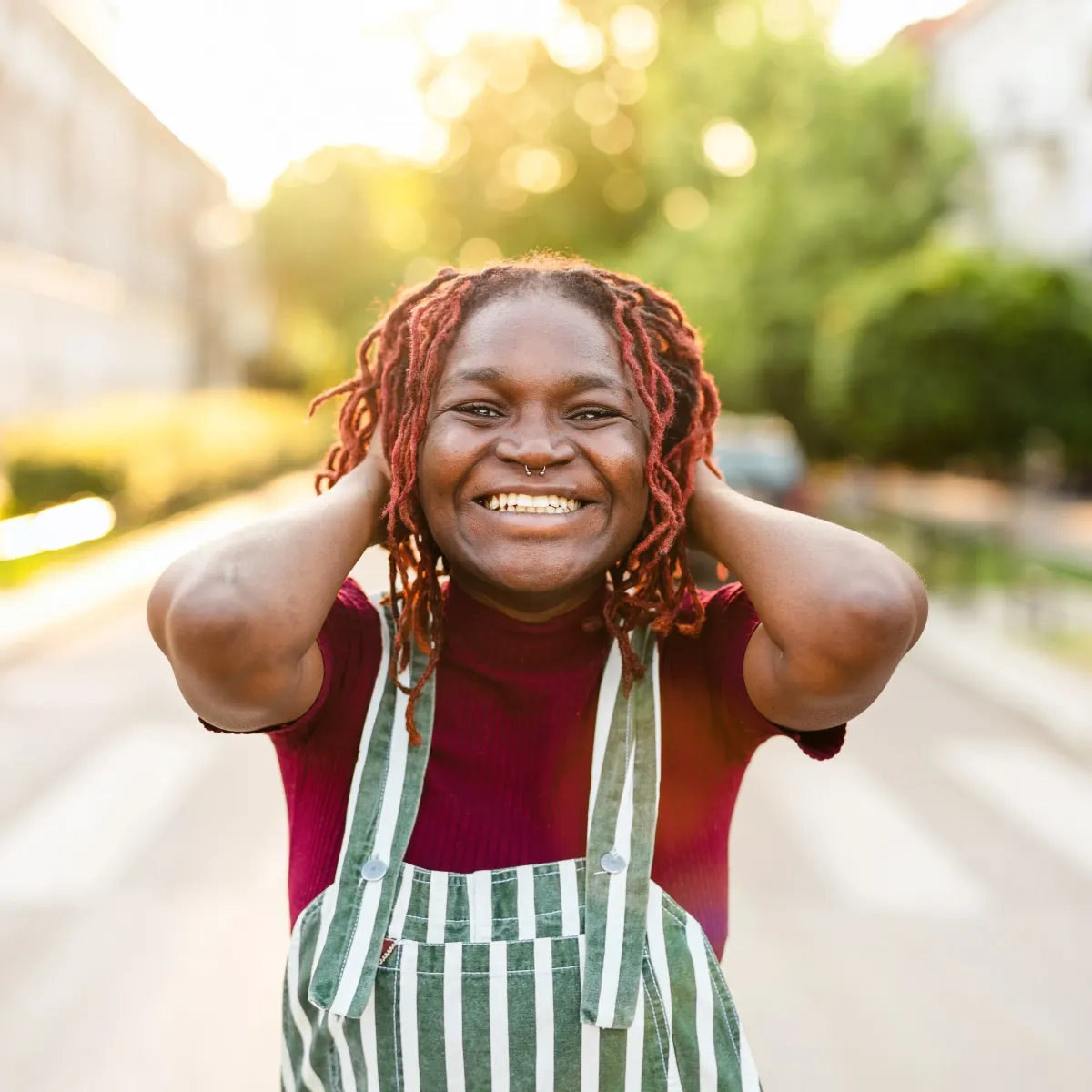
Step 2:
Trust Your Experiences
This step helps clients untangle shame from their perceptions, and begin honoring their emotional and physical realities instead of overriding them
Trust your own experience when others dismiss your identity as not authentic
Acknowledge the hurt of not being taken seriously when you try to talk about all the facets of your life
Stop masking all day and admit that being yourself shouldn’t feel so unsafe or so exhausting
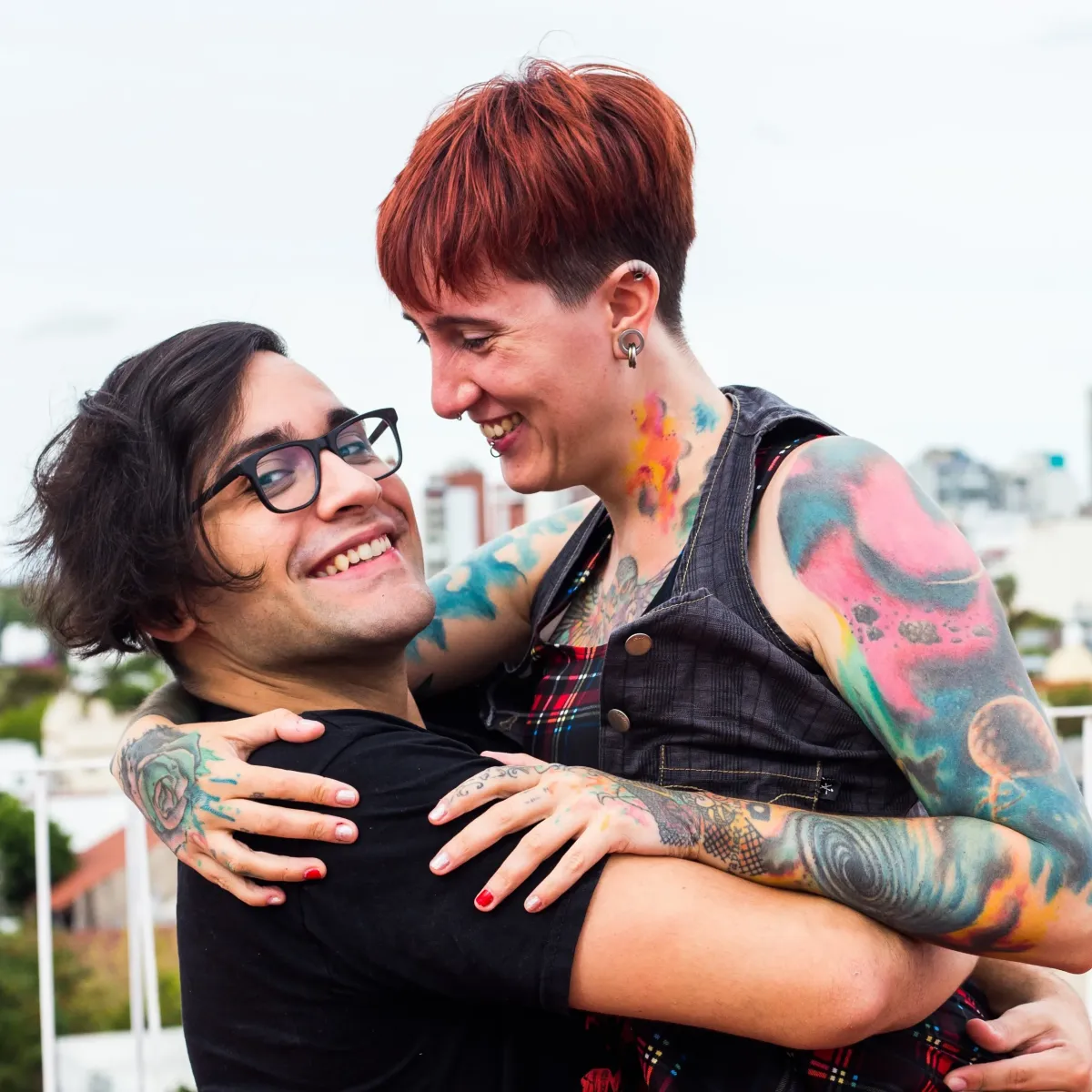
Step 3:
Recognize Your Needs
Give yourself permission to feel unsure, frustrated, and in-between without apologizing for it
Identify your needs and learn how to believe in their worthiness.
Figure out your accommodations and actually ask for them without feeling ashamed
Believe you’re worthy of love when you need help just existing sometimes
HOW IT WORKS
This is the "Enoughness Project," a 9-step process that helps you move from surviving and questioning if you’re ever “enough” to feeling grounded, worthy, and present in your own life.
You’ll learn how to recognize the patterns that keep you stuck, release shame that doesn’t belong to you, and build a way of living that feels possible, even when grief, joy, and difference all live in the same body.
Each phase is designed to help you stay with yourself instead of disappearing, connect without overworking, and reclaim the truth that you were never broken to begin with.

Phase 1:
Recognizing & Naming
Start recognizing the patterns, struggles, and needs that have been misdiagnosed, minimized, or ignored. Begin trusting your internal experience, even when it doesn’t match what others expect or recognize. Recognize that it’s okay to need comfort, clarity, and belonging without having to choose one side.

Step 1:
Name What’s Been Misunderstood
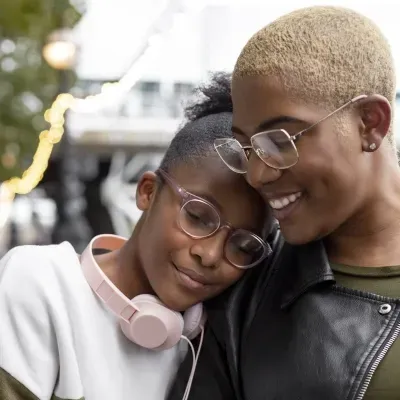
This step focuses on naming neurodivergence, trauma responses, or identity facets that were previously masked, dismissed, or internalized as personal flaws
Cope with feeling too queer, too different, too quiet in a room full of neurotypical or normative energy
Stop living with the fear that maybe your best is never going to be good enough

Step 2:
Trust Your Experiences
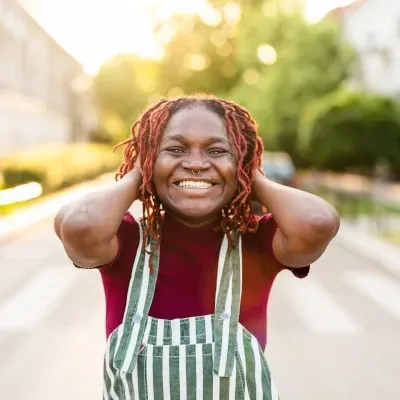
This step helps clients untangle shame from their perceptions, and begin honoring their emotional and physical realities instead of overriding them
Trust your own experience when others dismiss your identity as not authentic
Acknowledge the hurt of not being taken seriously when you try to talk about all the facets of your life
Stop masking all day and admit that being yourself shouldn’t feel so unsafe or so exhausting

Step 3:
Recognize Your Needs
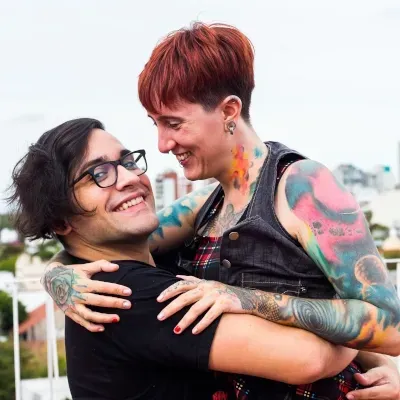
Give yourself permission to feel unsure, frustrated, and in-between without apologizing for it
Identify your needs and learn how to believe in their worthiness.
Figure out your accommodations and actually ask for them without feeling ashamed
Believe you’re worthy of love when you need help just existing sometimes
Phase 2: Untangling & Reprocessing
Start sorting through all the voices - family, culture, trauma, survival - and begin tuning into your own voice.
You don’t have to have it all figured out, just start listening for what’s true. Start making emotional room for the contradictions you’ve been carrying. You don’t have to resolve it all, but instead learn how to hold more at once.
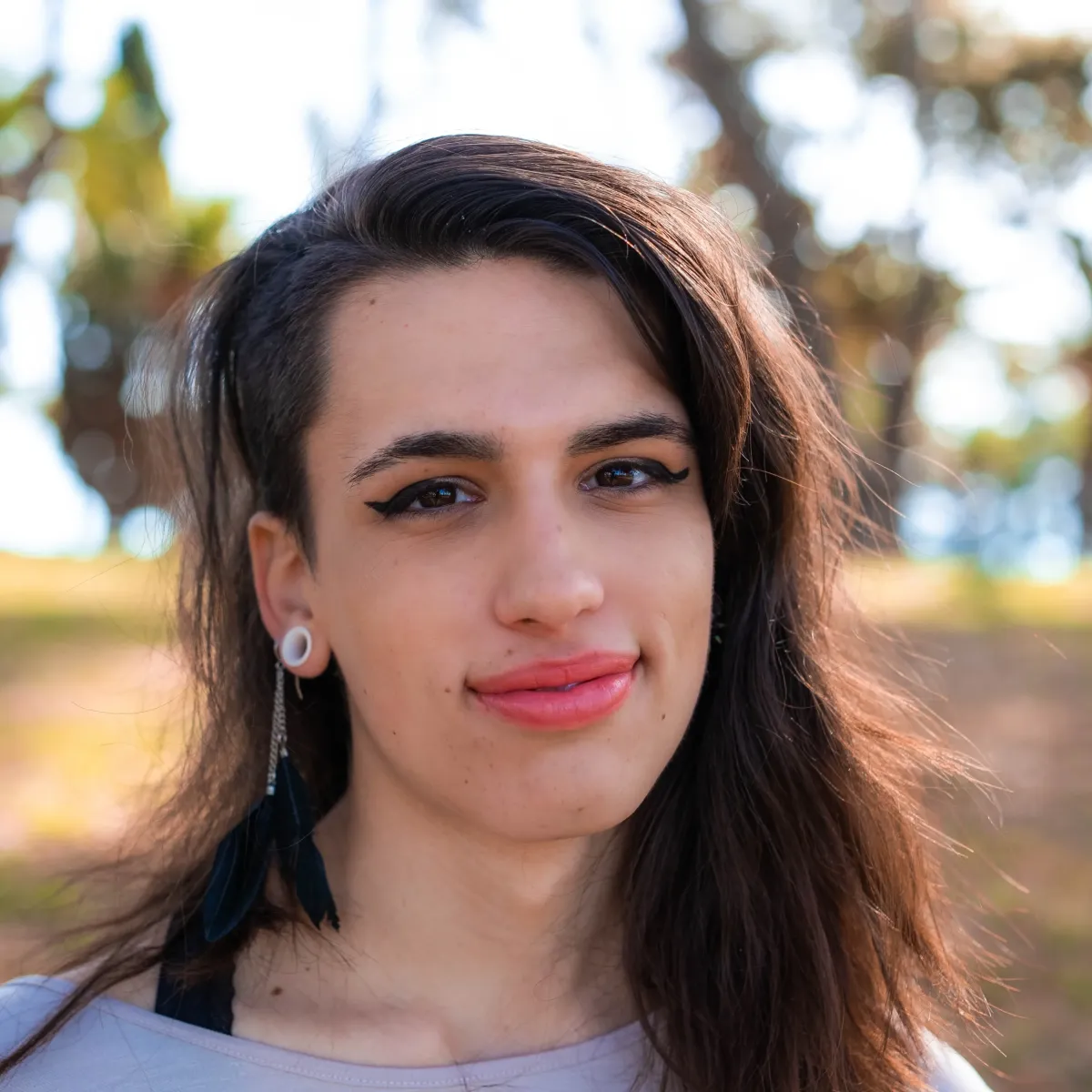
Step 4:
Unpack the Patterns
Rebuild your sense of worth when you’ve been labeled lazy, difficult, or a disappointment
Better understand cultural trauma and how you want to express your identities in a way that highlights your values
Recognize how your past attempts to belong led to burnout, masking, or self-abandonment
Start to separate what you actually value from what you were taught to tolerate
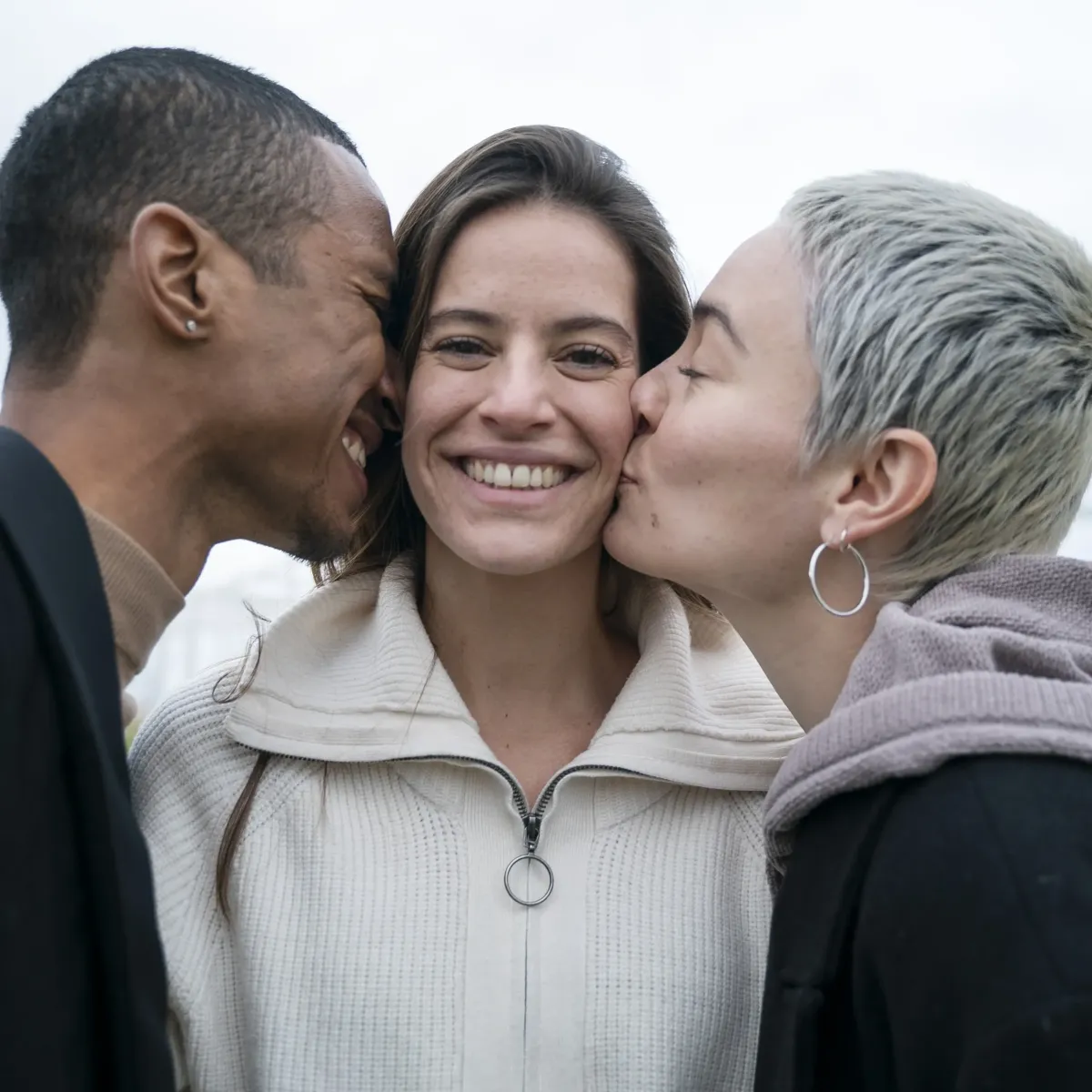
Step 5:
Hold All Parts of the Story
Hold joy and grief in the same body
Find your people who will remind you that “you’re not broken, the system is”
Keep believing you belong when you’ve done everything right and still feel like the wrong kind of different
Let yourself need help again and actually reach for it
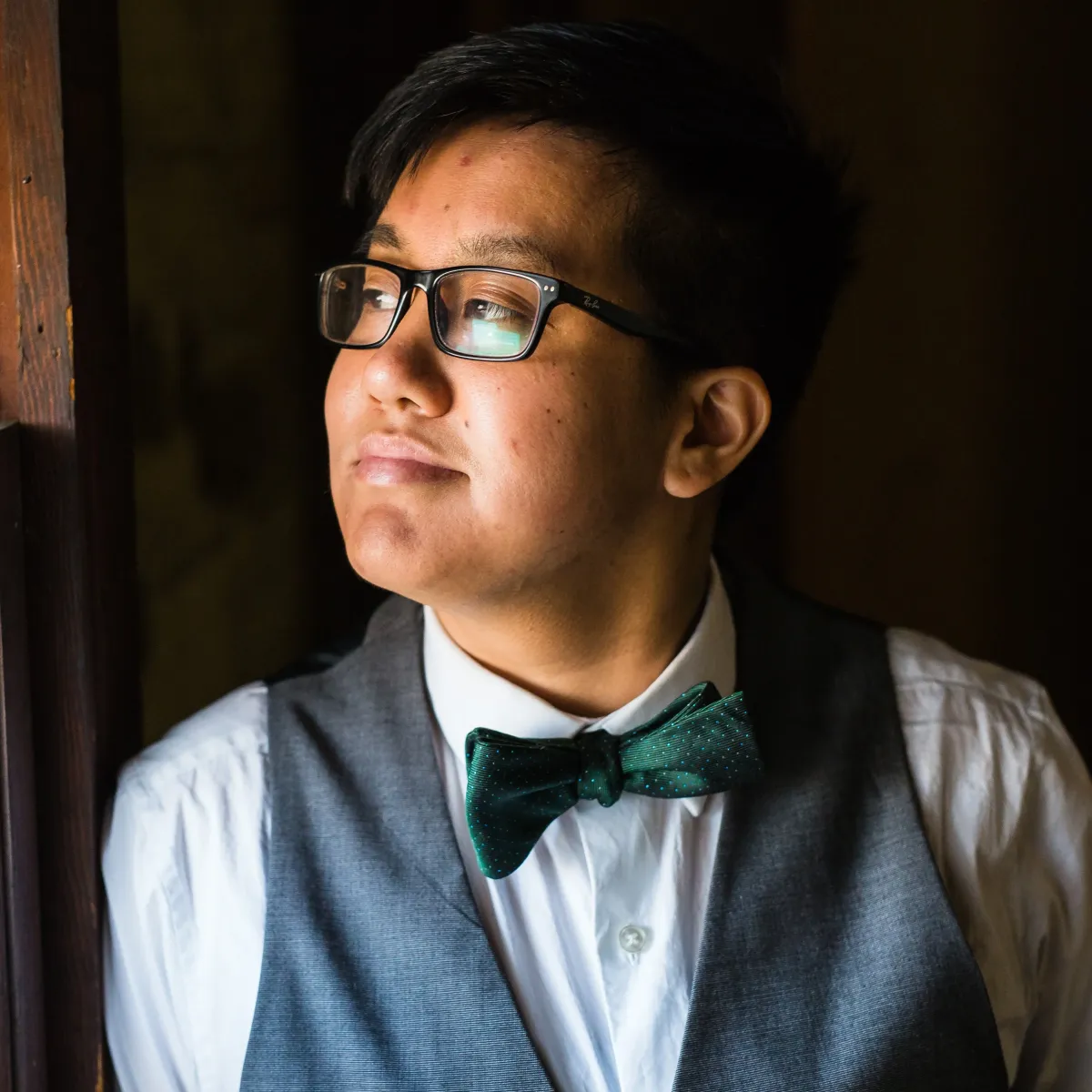
Step 6:
Get Clear on What Really Matters
Figure out what you want to carry forward, and what you’re ready to grieve
Figure out what love, safety, and success mean to you
Reflect on what parts of your culture you want to reclaim, reject, or reimagine
Embrace the fullness of your identity without having to explain or defend it
Stop living by rules that were never meant for someone like you
Phase 2: Untangling & Reprocessing
Start sorting through all the voices - family, culture, trauma, survival - and begin tuning into your own voice.
You don’t have to have it all figured out, just start listening for what’s true. Start making emotional room for the contradictions you’ve been carrying. You don’t have to resolve it all, but instead learn how to hold more at once.

Step 4:
Unpack the Patterns
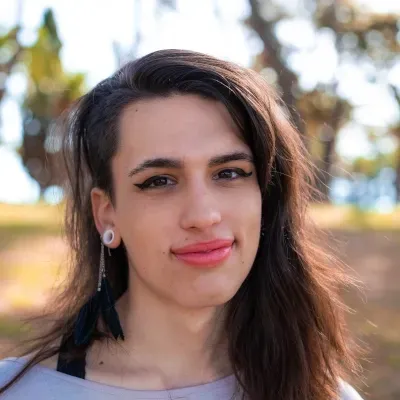
Rebuild your sense of worth when you’ve been labeled lazy, difficult, or a disappointment
Better understand cultural trauma and how you want to express your identities in a way that highlights your values
Recognize how your past attempts to belong led to burnout, masking, or self-abandonment
Start to separate what you actually value from what you were taught to tolerate

Step 5:
Hold All Parts of the Story
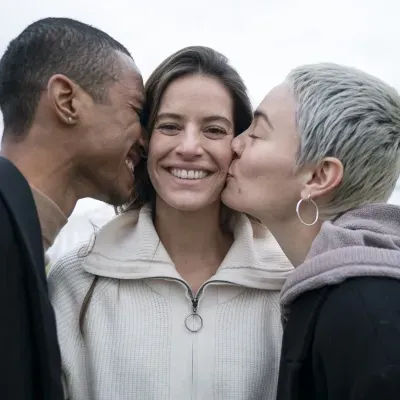
Hold joy and grief in the same body
Find your people who will remind you that “you’re not broken, the system is”
Keep believing you belong when you’ve done everything right and still feel like the wrong kind of different
Let yourself need help again and actually reach for it

Step 6:
Get Clear on What Really Matters
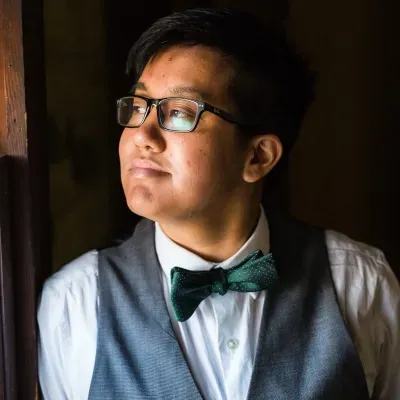
Figure out what you want to carry forward, and what you’re ready to grieve
Figure out what love, safety, and success mean to you
Reflect on what parts of your culture you want to reclaim, reject, or reimagine
Embrace the fullness of your identity without having to explain or defend it
Stop living by rules that were never meant for someone like you
Phase 3: Rebuilding & Choosing
Start practicing what alignment looks like now. Build relationships and rhythms that match your actual values. Whether it’s friendship, family, monogamy, polyamory, or community, this is about finding connection without self-erasure.
Start living like your life belongs to you, one built around joy, intention, and the freedom to change.
This is where grief and hope can coexist, and where you get to choose what’s next.
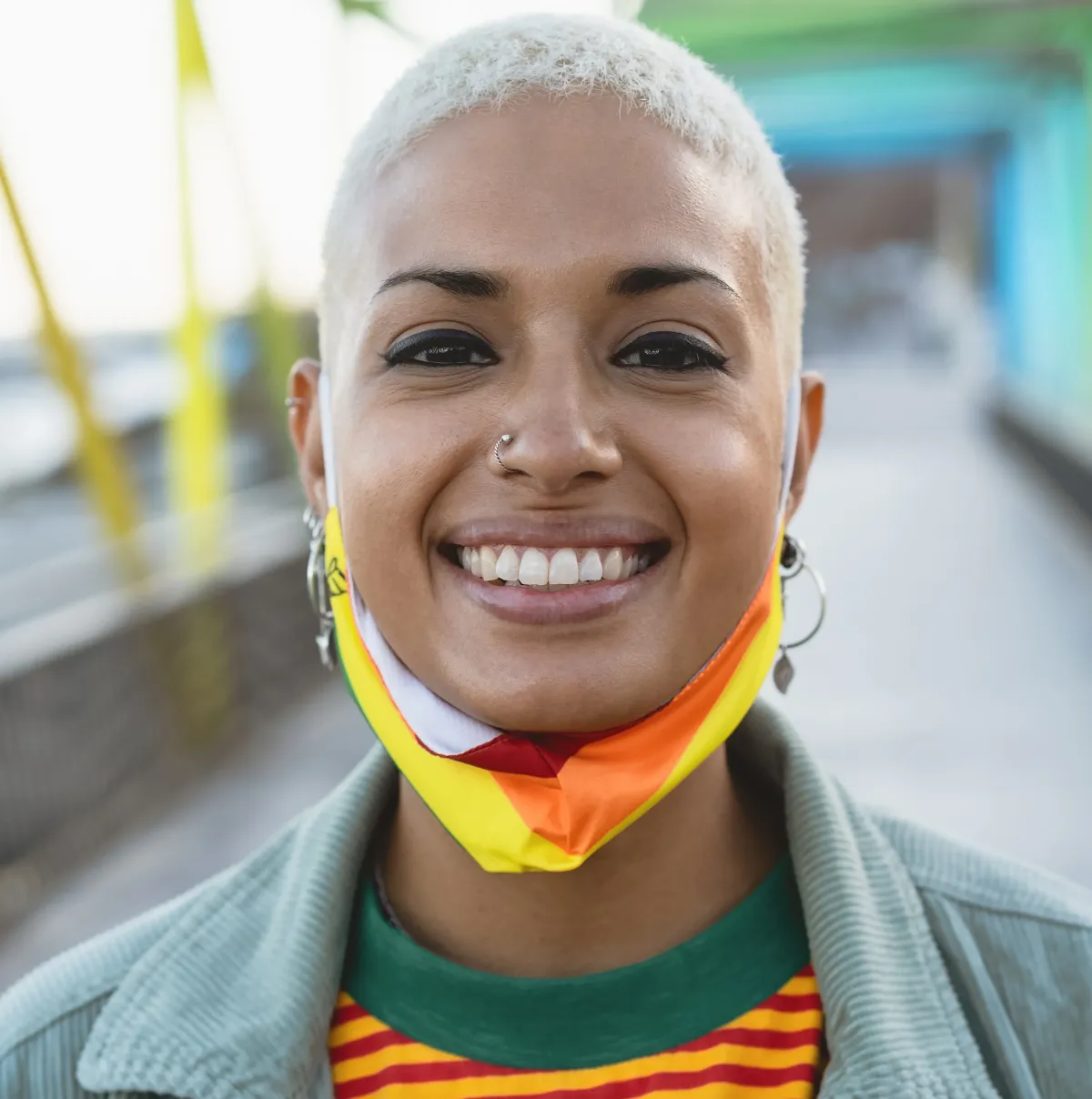
Step 7:
Live Closer to What Matters
Advocate for your needs when you’re in need of accommodation and support
Draw boundaries that respect your capacity and preserve relationships
Trust your experience when you’ve contributed meaningfully and built good relationships
Find pride in your path

Step 8:
Redefine Relationships on Your Terms
Express needs clearly without shame or apology
Allow yourself to want more closeness, freedom, or space
Stop choosing between safety and self-expression
Build connection without abandoning yourself

Step 9:
Choose a Future That Feels Fully Alive
Create rhythms that match your actual capacity, not what hustle culture demands
Live like you’re already enough
Choose joy and rest without guilt
Find meaning in your own path
Phase 3: Rebuilding & Choosing
Start practicing what alignment looks like now. Build relationships and rhythms that match your actual values. Whether it’s friendship, family, monogamy, polyamory, or community, this is about finding connection without self-erasure.
Start living like your life belongs to you, one built around joy, intention, and the freedom to change.
This is where grief and hope can coexist, and where you get to choose what’s next.

Step 7:
Live Closer to What Matters
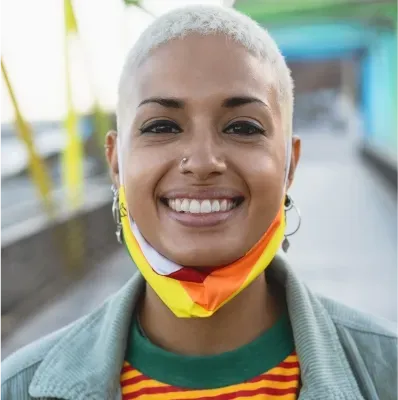
Advocate for your needs when you’re in need of accommodation and support
Draw boundaries that respect your capacity and preserve relationships
Trust your experience when you’ve contributed meaningfully and built good relationships
Find pride in your path

Step 8:
Redefine Relationships on Your Terms

Express needs clearly without shame or apology
Allow yourself to want more closeness, freedom, or space
Stop choosing between safety and self-expression
Build connection without abandoning yourself

Step 9:
Choose a Future That Feels Fully Alive

Create rhythms that match your actual capacity, not what hustle culture demands
Live like you’re already enough
Choose joy and rest without guilt
Find meaning in your own path
You’re Already Enough. Now Let’s Build a Life That Fits You
Surviving isn’t the same as living. Katrina's "Enoughness Project" offers a step-by-step way to stop collapsing under shame, stop disappearing in order to belong, and stop overworking yourself to prove you’re enough. Instead, you’ll learn how to hold both joy and grief, rest in your own worth, and create a life and relationships that feel real, sustainable, and yours.
You’re Already Enough. Now Let’s Build a Life That Fits You.
Surviving isn’t the same as living. Katrina's "Enoughness Project" offers a step-by-step way to stop collapsing under shame, stop disappearing in order to belong, and stop overworking yourself to prove you’re enough. Instead, you’ll learn how to hold both joy and grief, rest in your own worth, and create a life and relationships that feel real, sustainable, and yours.
What We're Going to Cover
When you search for a “queer therapist” or “LGBTQ therapist,” you don’t just want someone who knows the textbook answers. You want someone who gets the lived experience of being queer, neurodivergent, or culturally in-between.
This work is about creating a therapy space where your whole identity belongs. Together, we’ll cover the tools, insights, and practices that help you stop masking, stop overworking, and stop apologizing for who you are, so you can build a life that feels real and possible.
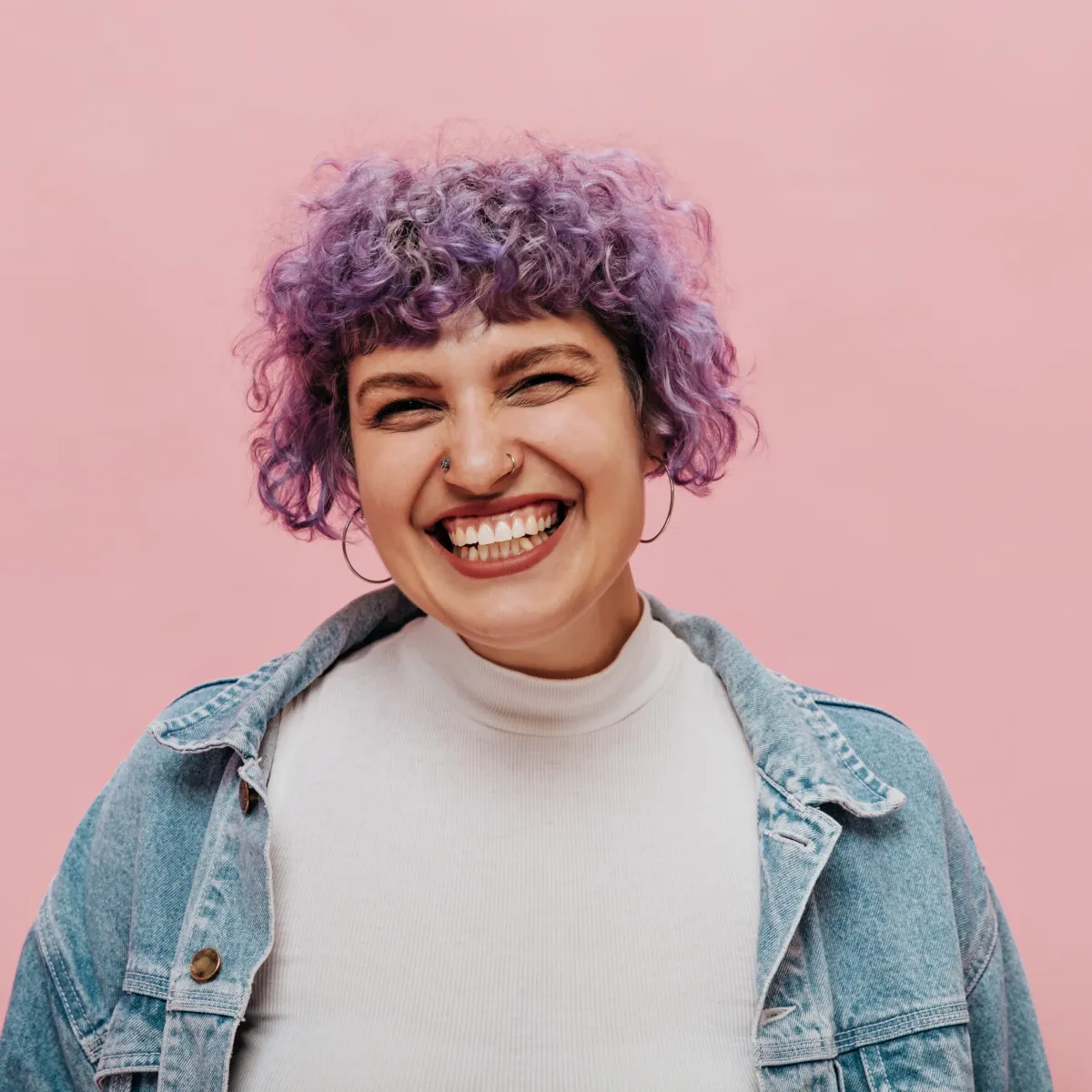
Reclaiming Self-Trust and Emotional Clarity
Learn how to recognize when your reactions come from survival patterns, and how to respond without collapsing into shame
Stop questioning if you’re too much or not enough, and start trusting your lived experiences
Practice listening to your body and emotions as valid sources of information
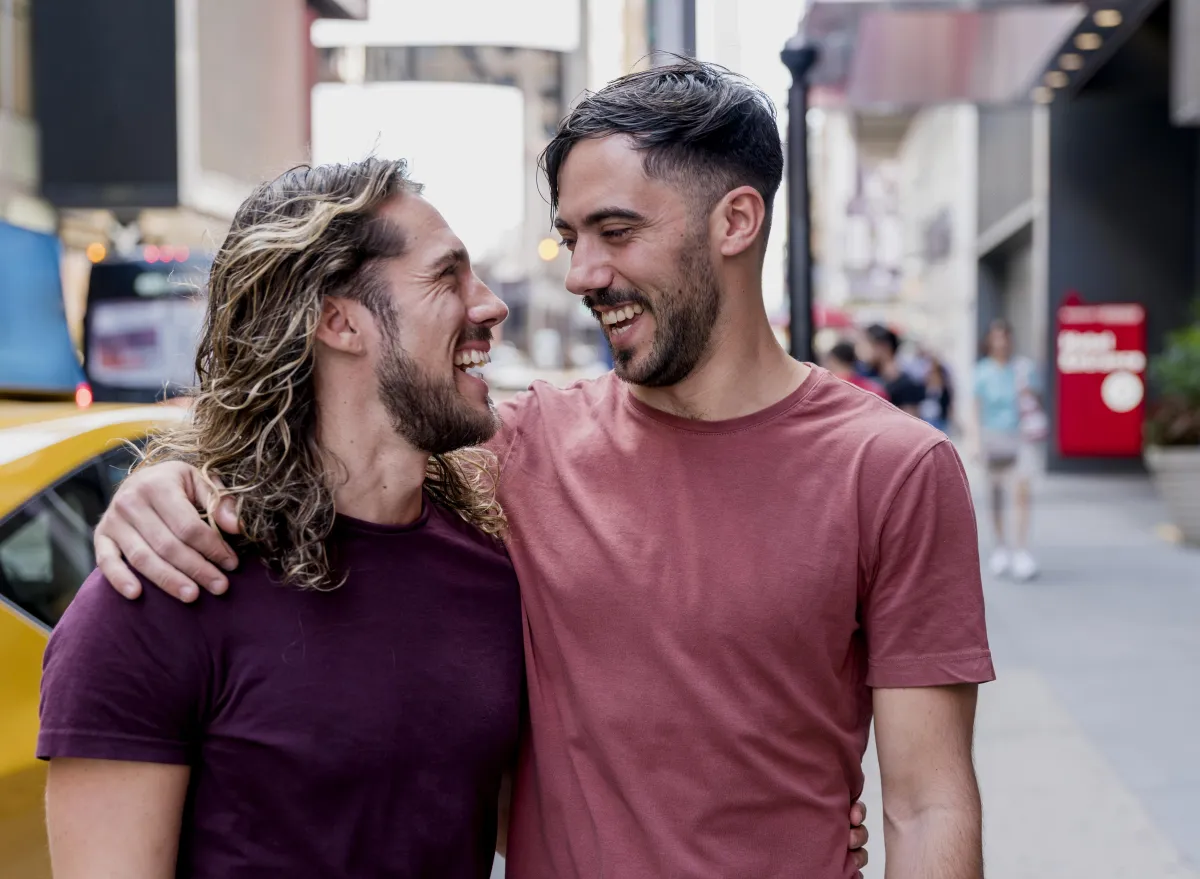
Rebuilding Connection Without Self-Betrayal
Communicate your needs clearly
Repair intimacy without relying on pressure, performance, or pretending you’re fine
Create relationships that allow both difference and closeness
Learn how to show up authentically in friendships, family, and love
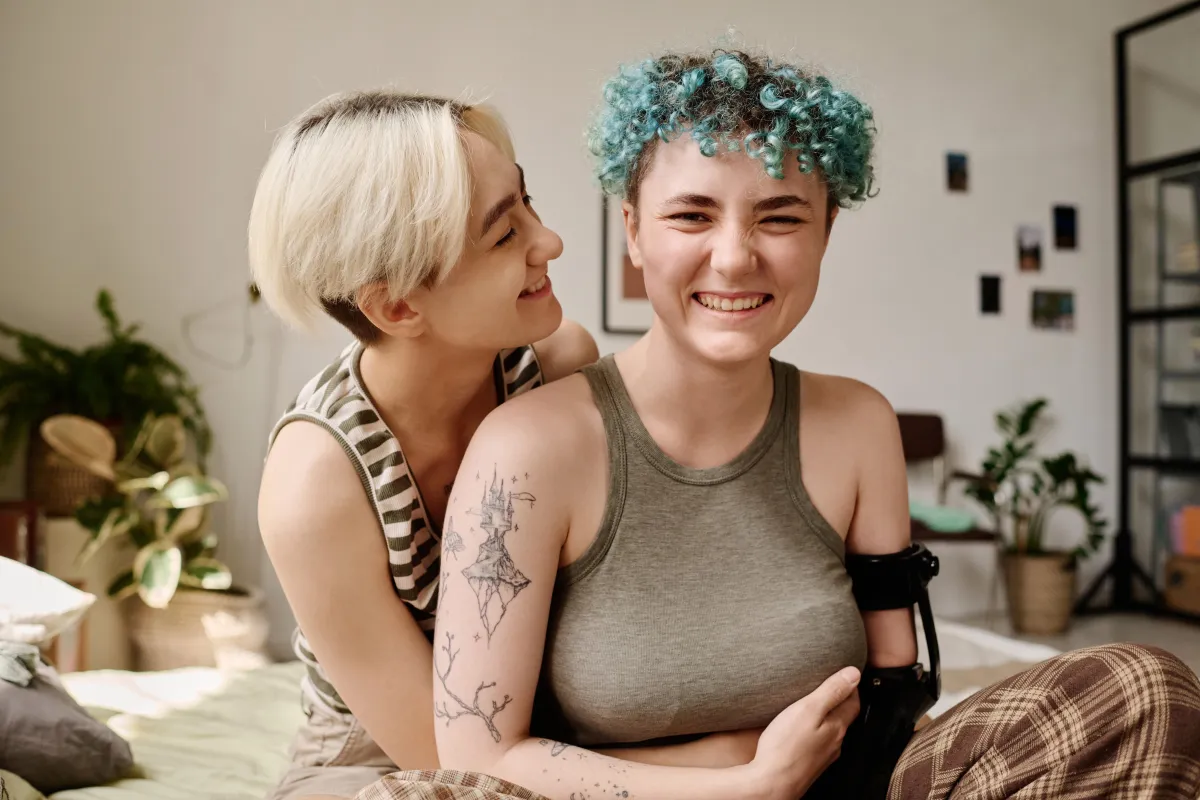
Redefining Relationships and Building a Future That Fits
Decide what kinds of love, family, and community you want to grow
Create rhythms of rest, intimacy, and work that reflect your actual capacity
Build a future where grief, joy, and difference can coexist, and where you get to choose what’s next
What We're Going to Cover
When you search for a “queer therapist” or “LGBTQ therapist,” you don’t just want someone who knows the textbook answers. You want someone who gets the lived experience of being queer, neurodivergent, or culturally in-between.
This work is about creating a therapy space where your whole identity belongs. Together, we’ll cover the tools, insights, and practices that help you stop masking, stop overworking, and stop apologizing for who you are, so you can build a life that feels real and possible.
Reclaiming Self-Trust and Emotional Clarity

Learn how to recognize when your reactions come from survival patterns, and how to respond without collapsing into shame
Stop questioning if you’re too much or not enough, and start trusting your lived experiences
Practice listening to your body and emotions as valid sources of information
Rebuilding Connection Without Self-Betrayal

Communicate your needs clearly
Repair intimacy without relying on pressure, performance, or pretending you’re fine
Create relationships that allow both difference and closeness
Learn how to show up authentically in friendships, family, and love
Redefining Relationships and Building a Future That Fits

Decide what kinds of love, family, and community you want to grow
Create rhythms of rest, intimacy, and work that reflect your actual capacity
Build a future where grief, joy, and difference can coexist, and where you get to choose what’s next
Meet Katrina Mautner, LMFT
Hi, I’m Katrina (they/them/elle).
I believe you deserve to live a life free of guilt and full of purpose, connection, and joy.
I know the confusion of feeling like you’re never doing enough, while also feeling overwhelmed with everything you are doing. Growing up as a multi-ethnic and “weird” kid, I often felt paralyzed with anxiety around people who made fun of the ways I didn’t fit in. I longed for deep relationships and a sense of belonging, but instead felt unworthy and disconnected.
In my 20s, around the time I was navigating an unexpected disability, I started therapy to heal these old feelings and figure out what was next for me. Over time, therapy helped me see my sensitivity and idiosyncrasies as assets. It helped me release inherited trauma, treat myself with kindness, and get excited about the future again.
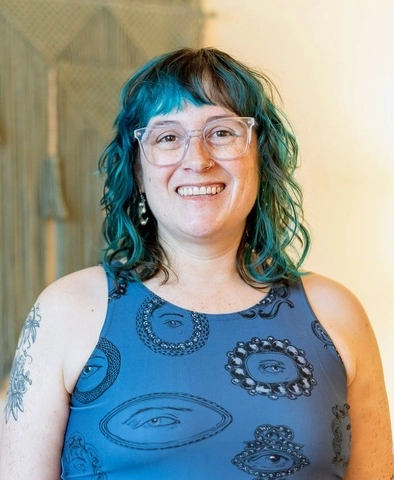
As a Licensed Marriage and Family Therapist (#133116), I now help others do the same. Many of my clients are LGBTQ+, neurodivergent, or navigating complex cultural and family dynamics. They come to me because they feel stuck between who they are and who the world tells them they should be. Together, we untangle harmful narratives, reclaim self-trust, and build relationships and rhythms that reflect their real values.
My training includes counseling psychology at The Wright Institute, Narrative Therapy foundations, Relational Somatic Healing, QTIFS (Queer & Trans Internal Family Systems), and membership in Bay Area Open Minds, Gaylesta, and the National Queer & Trans Therapists of Color Network. I co-founded both the Therapists of Color Affinity Group and the Anti-Racist Solidarity Group because community and justice are central to how I work.
Outside of therapy, I love dance classes, reading speculative science fiction, collecting stickers, and spending time with my kittens, Elote and Sunflower. I also sing in a local choir, spend time with family, and attend as many queer community events as I can, especially to dance and connect.
I believe your healing radiates outward, impacting not just you but everyone around you. If you’re ready to embrace your quirks, your mind, your passion, and your neurodiversity, I’d be honored to walk alongside you
Meet Katrina Mautner, LMFT

Hi, I’m Katrina (they/them/elle).
I believe you deserve to live a life free of guilt and full of purpose, connection, and joy.
I know the confusion of feeling like you’re never doing enough, while also feeling overwhelmed with everything you are doing. Growing up as a multi-ethnic and “weird” kid, I often felt paralyzed with anxiety around people who made fun of the ways I didn’t fit in. I longed for deep relationships and a sense of belonging, but instead felt unworthy and disconnected.
In my 20s, around the time I was navigating an unexpected disability, I started therapy to heal these old feelings and figure out what was next for me. Over time, therapy helped me see my sensitivity and idiosyncrasies as assets. It helped me release inherited trauma, treat myself with kindness, and get excited about the future again.
As a Licensed Marriage and Family Therapist (#133116), I now help others do the same. Many of my clients are LGBTQ+, neurodivergent, or navigating complex cultural and family dynamics. They come to me because they feel stuck between who they are and who the world tells them they should be. Together, we untangle harmful narratives, reclaim self-trust, and build relationships and rhythms that reflect their real values.
My training includes counseling psychology at The Wright Institute, Narrative Therapy foundations, Relational Somatic Healing, QTIFS (Queer & Trans Internal Family Systems), and membership in Bay Area Open Minds, Gaylesta, and the National Queer & Trans Therapists of Color Network. I co-founded both the Therapists of Color Affinity Group and the Anti-Racist Solidarity Group because community and justice are central to how I work.
Outside of therapy, I love dance classes, reading speculative science fiction, collecting stickers, and spending time with my kittens, Elote and Sunflower. I also sing in a local choir, spend time with family, and attend as many queer community events as I can, especially to dance and connect.
I believe your healing radiates outward, impacting not just you but everyone around you. If you’re ready to embrace your quirks, your mind, your passion, and your neurodiversity, I’d be honored to walk alongside you
you got questions?
We have answers!
How does this program work?
The "Enoughness Project" is a structured, step-by-step therapy process offered online throughout California. In 90 days, you’ll move through a guided 9-step framework that helps you recognize your patterns, untangle old survival strategies, and build relationships and rhythms that fit your values. Sessions are held virtually, making it easy to connect from your home with a queer therapist who understands identity, culture, trauma, and neurodivergence.
Who is this for?
This program is especially supportive for LGBTQ+ and neurodivergent clients, people navigating cultural or family trauma, and anyone who feels caught between who they are and who they’ve been told to be. If you’ve been searching for an LGBT therapist near me, this work offers identity-affirming, trauma-informed care designed for queer, trans, and multicultural communities.
What makes this different from other therapy?
This isn’t a generic approach or a set of surface-level coping skills. It’s a trauma-informed, culturally aware, queer-centered therapy method that helps you move beyond surviving. You’ll learn how to live like you are already enough, stop apologizing for your needs, and build relationships that reflect your real values.
How do I know if i'm ready?
Feeling uncertain is part of the process. Many clients arrive unsure if they even “deserve” this level of support. That’s exactly why this work exists. You don’t have to have it all figured out. The first step is simply showing up and letting yourself try something different. Together, we’ll take it one step at a time.
Do you only work with queer clients?
While most of my clients are LGBTQ+, neurodivergent, or navigating cultural complexity, I welcome anyone who feels drawn to this work. What matters most is your willingness to explore your story, honor your needs, and build a life that feels aligned.
Do you accept insurance?
I do not currently accept insurance. However, I can provide superbills for out-of-network reimbursement, depending on your coverage. Many clients use HSA or FSA cards to cover sessions. We can discuss financial accessibility during your consultation.
Do you see clients in person?
Yes, I have an office near Santa Clara Avenue, and Oakland Avenue, in the Grand Lake neighborhood of Oakland, CA.
How do I get started?
The first step is to schedule a free consultation call. This gives us a chance to connect, explore what you’re looking for, and see if this program feels like the right fit.
You’re Already Enough. Now Let’s Build a Life That Fits You
This program isn’t about fixing what’s broken. It’s about helping you trust your own experiences, honor your needs, and create relationships and rhythms that reflect your truth. You don’t have to keep masking, overworking, or doubting yourself to earn belonging. You get to rest. You get to be loved as you are. You get to live like you are already enough.
You’re Already Enough. Now Let’s Build a Life That Fits You
This program isn’t about fixing what’s broken. It’s about helping you trust your own experiences, honor your needs, and create relationships and rhythms that reflect your truth. You don’t have to keep masking, overworking, or doubting yourself to earn belonging. You get to rest. You get to be loved as you are. You get to live like you are already enough.
